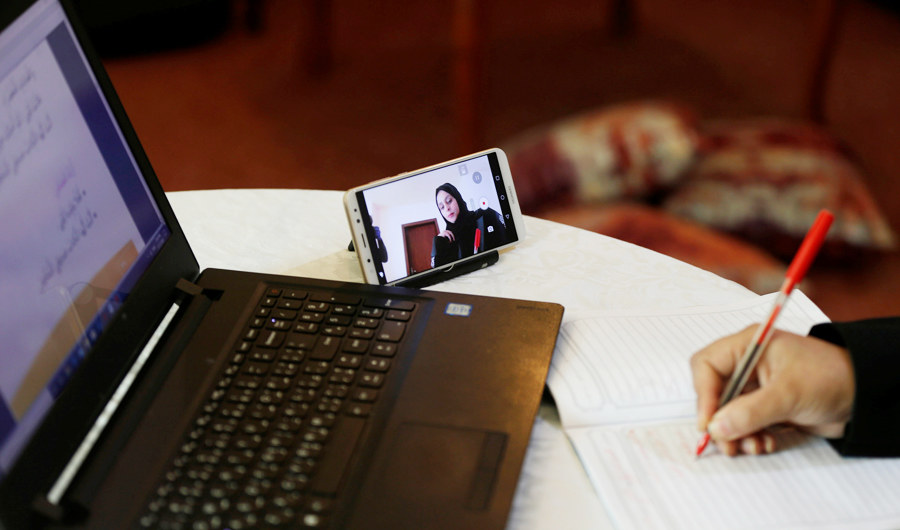Beyond any shadow of a doubt, technology has drastically changed and improved all aspects of human life. The most recent example is how we managed our daily affairs such as business meetings, routine office work, education and shopping using the latest technology in the wake of the COVID-19 pandemic.
Thanks to technology, authorities worldwide managed to ensure continuity in education by adopting online learning methods. This month, as students are celebrating their graduation from high schools and universities, we should pause for a moment and think about the future of learning and new methods of teaching that technology has to offer.
According to recent statistics issued by UNESCO, nearly 1.3 billion children and youth were affected by the closures of educational institutions globally due to the pandemic. The closures forced the implementation of digital learning methods, thus drastically changing methods of education for good.
As schools and universities were closed down due to the pandemic, online education kept students in virtual classrooms, ensured completion of curricula and kept teachers employed. On the other hand, the e-learning system has overburdened parents, especially mothers. This new system has disrupted their daily routines. In addition to that, many other aspects, which are part and parcel of going to school, of a child’s personal growth have also been affected such as the skills learned from peers, communication skills and the values of tolerance imbibed from studying in a diverse environment.
We also need to assess which subjects can be taught online more successfully than others.
Hoda Al-Helaissi
Children’s attention spans have also been disrupted as their eyes roam in familiar surroundings such as bedrooms, living rooms and kitchens. The basic structure of a school environment, whereby a student sits in a chair, has been replaced by a more relaxed setting, and classes are given, in some cases, to students as they lie on a bed or sofa, sit on the floor, or are outside. My question here is how much information retention is possible during online sessions — especially in the case of younger children.
Other challenges include the possibility of a digital divide widening as privileged children owning computers flourish compared to the disadvantaged children without; the gap increases further as reliable Internet access is not always available.
From an academic point of view, I believe that students are losing out, as leniency is being shown while grading their exam papers because these are extraordinary times for which nobody is responsible.
The distance learning system should be evaluated from all these angles and assessed for its efficiency in the long run. We also need to assess which subjects can be taught online more successfully than others.
The pandemic has brought to the surface problems we already knew existed in “traditional” education, and without a doubt technology, e-learning, virtual classrooms and digital platforms have a place in the future. But, in my view, education should not be a completely online experience as physical, face-to-face involvement is necessary for the development of soft power and interpersonal skills.
• Hoda Al-Helaissi has been a member of the Shoura Council since 2013. She is also a member of the Foreign Affairs Committee within the Shoura.












